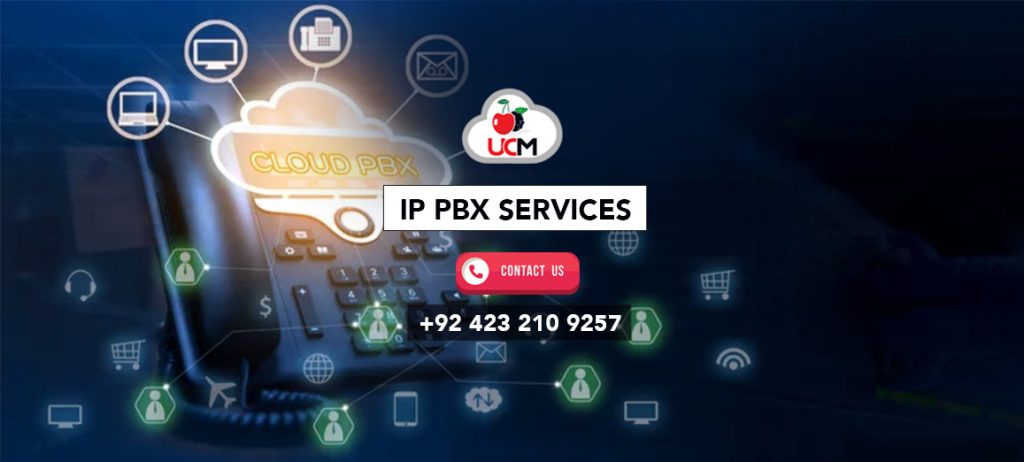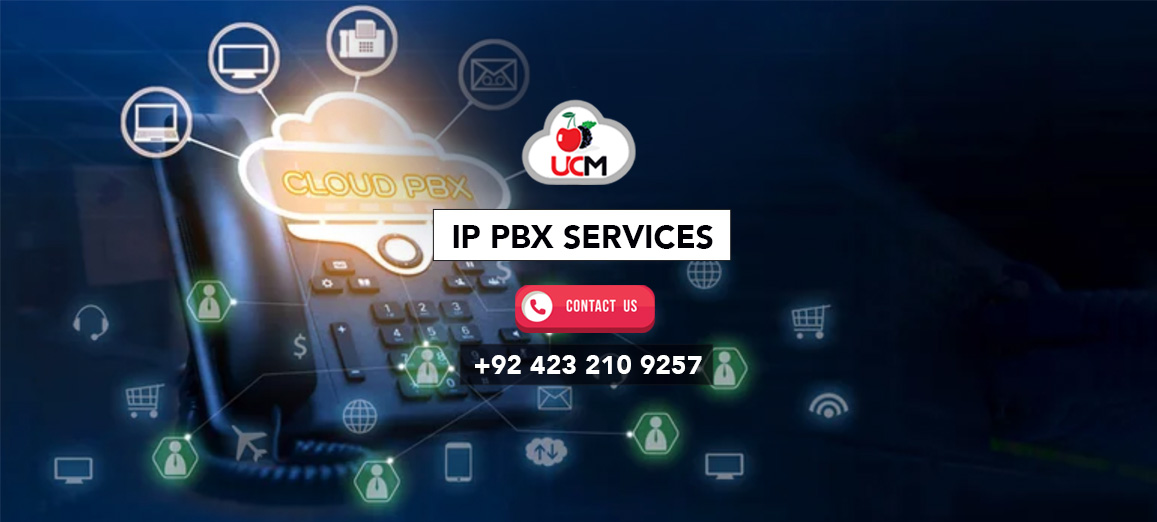Why is The IP PBX System Future For Business?
Why Do You Need an IP PBX System For Your Business Communication?
Every business evolves, grows and expands over time and never stands still so do your customer expectations. Effective internal and external communication is paramount to keep your business on the fast pace of progress, which is possible with the fusion of advanced technology, operational excellence and futuristic charm. Enter the IP PBX System as a game-changing technology that has come a long way from traditional PBX systems in terms of better connectivity and functionality due to integration with artificial intelligence. Let’s dive deep into the benefits and importance of IP solutions for remote teams and how they can future-proof your business.
A Journey to the Evolution of Business Phone Systems
1. Landlines as Foundation of Business Communication: Earlier, landline phone systems were used for business communication that provided limited features and functionality. They were considered reliable means for incoming and outgoing voice communication within a fixed location to connect with customers and partners.
2. The Advent of PBX Systems: As technology continues to evolve, traditional PBX systems come into the market as a better alternative to landlines. Companies can manage multiple lines and incorporate extensions easily with these systems. Your agents get the potential to forward calls or send/receive voicemails. It was the first step towards customised and flexible business tools.
3. Smartphone, Internet & VoIP Revolution: The arrival of the internet and mobile technology proved a game changer with business communication no longer constrained to desk phones. Your teams can collaborate virtually from whenever, wherever required through internet access leading to increased productivity and efficiency. Moreover, smartphones revolutionise business interactions by bringing email and other apps to the palm of your hand.
4. AI & IoT Integration: The future of communication is promising with the integration of artificial intelligence and the Internet of Things. IoT-based communication devices and AI-enabled virtual assistants will make business interactions more efficient and intuitive.
Understanding The Basics of IP PBX System
For years, PBX (private branch exchanged systems have served as internal business telephone systems to manage incoming and outgoing business calls. The latest IP (Internet protocol) telephony has replaced the traditional systems that allow establishing calls over the Internet connection. The main aim of IP systems is the management of the incoming and outgoing call traffic of a business. Meanwhile, VoIP solutions have made communication easier and streamlined. Moreover, businesses using IP technology can manage voice calls and other VoIP communication channels through a single network supporting better flexibility, scalability and agility.
Which Type of IP IPX is Suitable for a Business?
Making the right choice while moving from traditional legacy systems can be challenging for businesses. On-premises and cloud IP PBX are two common systems in practice that are descendants of legacy systems.
1. Analog PBX: Traditional or legacy PBX are the oldest known PBX systems that need physical equipment and are housed on-premises. They operate through copper-based telephone lines connected with a PBX box and kept in the office building. Analog systems are considered outdated today because they offer fewer features and integrations than the latest VoIP and cloud-based systems. Moreover, the PBX box contains a telephone switchboard that allows your team to communicate by connecting phones and interface between PSTN lines and private networks.
2. On-premises IP PBX: This IP system is placed in your office premises and can utilise an existing internal network and internet connection. It contains more advanced features than legacy PBX systems like call routing, IVR, conferencing, video calling and more. Meanwhile, the on-premises system works best when integrated with SIP trucks offering better resilience and more stable sound quality.
3. Cloud PBX: Virtual PBX is a digital system managed by a service provider and hosted in the cloud. A hosted or cloud PBX runs over an internet connection and benefits from PBX system functionality. This system offers more scalability and flexibility for businesses. Thus, they can integrate their phone systems with business CRM to make processes more efficient. In addition, it serves as a unified communication platform to streamline business communication processes.
Why Switch to Cloud-Based IP Systems? Top Reasons
Moving to a VoIP PBX system is wise for businesses looking to reduce their communication costs. These latest systems offer better reliability and allow you to go global or scale considering your business needs. Let’s learn about some important reasons that might convince you to switch.
1. An Easy-to-Use & Manageable System
Whether choosing an on-premises or cloud-based IP PBX, the system is managed through a web-based dashboard. It also means that you should not need to worry about maintenance, customisation and upgradation because the service provider is responsible for all this. This saves significant costs and time for your teams.
2. Quick to Deploy & Install
The IP system runs as software so you can install it more quickly and use it instantly. Your teams with initial IT knowledge can install the system and save time spent on hiring IT professionals. As this system works through the Internet, the cost of long-distance and international calls also lowers.
3. Allow Scaling Up & Down
Scaling is difficult in legacy systems while easier in cloud-based VoIP systems. Small businesses and established enterprises can invest in the system to stay dynamic. They can add extensions and phones according to their business needs and provide a friction-free experience to their customers.
4. Support Remote Working
The latest VoIP systems make your sales and marketing agents more efficient and productive. They can deliver a more seamless customer service experience through this unified communication system. Many service providers offer softphones and applications for mobile devices that enable your remote workforce to stay connected with customers and team members from anywhere. This also fosters a collaborative environment and keeps all your teams on the same page.
Final Thoughts: Make the Move
Indeed, a cloud-based IP PBX System has become a solution of choice for businesses today to manage incoming and outgoing calls. These systems have come a long way from legacy and wired systems as the evolution of the internet and the integration of AI has increased their efficiency. Businesses can keep their teams together, manage internal and external communication beyond office boundaries and improve business connectivity. In addition, these secure, flexible, futuristic and scalable solutions have made relocation easy as nothing needs to move during the process. Are you looking to switch from a legacy system to the latest cloud PBX? Contact CherryBerry UCM right away for expert assistance to grow and expand easily.
Keep Your Business Connected with IP PBX System
What is an IP PBX System?
Customer service is an important aspect of the success of any business that depends on effective communication. Gone are the days when businesses used traditional phone lines for external and internal communication. Today, IP PBX or unified communication systems are being used to meet the modern communication needs of businesses. An IP PBX System can be described as a telecommunication device that ensures voice connectivity between the desk phones of a business. It manages the incoming and outgoing calls across the telephone network through an internet connection instead of traditional phone lines. The term IP is a short form of internet protocol, a way to transfer data like calls to other servers via the internet. Meanwhile, PBX denotes private branch exchange, an internal telephone system that exists on-premises or companies can host it using cloud technology. Let’s explore why switching to the latest IP PBX technology is beneficial for your business.
1. Offer Scalability & Flexibility
The main advantage of the latest VoIP PBX technology is that it has developed to grow and adapt to your dynamic business needs. For instance, companies can easily remove or add new users, features and extensions without installing extra hardware or additional expenses. They can customize their system considering their particular requirements like setting up call forwarding, call routing and call recording. Companies should use the PBX solution that provides both flexibility and scalability without compromising on their business goals.
2. Ensure Data Security
Before investing in a VoIP PBX system, you should have an idea about its security and reliability. As this system connects your phone system to the internet, companies need to take extra care to keep their business and customer data protected from viruses, cyber-attacks, hackers and data breaches. To ensure the protection, you should have a system that features authentication, strong encryption and firewall options. This way, you can prevent data breaches or unauthorized access. The backup and redundancy features also keep your phone system always functional and available even during network or power failure and natural disasters.
3. Enhance Efficiency & Save Costs
The latest internet-based telephony systems offer great efficiency and are cost-effective solutions. Companies can save costs on phone bills as VoIP PBX systems use an internet connection to make and receive calls. Likewise, they can also save money on installation, maintenance and upgrades. This is because they don’t have to buy new hardware or equipment. With this technology, you can improve your customer service and productivity using its different features. These features include conferencing, voicemail, auto attendant and mobile integration. You should choose the IP PBX system that has an intuitive and user-friendly interface.
4. Allow Integration with Existing Devices
Another benefit of IP PBX technology is its integration capabilities. This system supports the integration with the business’s existing software, devices and platforms. Companies should go for systems that work seamlessly on all mobiles, computers, tablets and phones. Companies can also integrate the system with CRM, ERP and other business applications to enhance efficiency. Moreover, you can enable integration with your preferred services through plugins, extensions and APIs.
5. IP PBX System Offers Future-Proof Solutions
Many companies prefer to collaborate with IP PBX service providers to get advanced features. This way, their system automatically updates and also remains functional according to the latest trends. Service providers handle all maintenance and security updates. Your IP PBX technology should have compatibility with emerging trends and technology to adapt to changing business needs. Regular addition of new features and functions also ensures the longevity of the system.
Final Thoughts
As an IP PBX system seems less costly, still you may have to deal with technical bottlenecks and maintenance costs. However, a cloud-based system has emerged as an ideal solution. The cloud-based PBXs come with advanced communication features that promote unified communication across organizations. Collaboration with a VoIP service provider enables you to focus on customer service and leave the rest to the service provider. If you are considering switching to VoIP, thinking of setting up a new phone system or want to upgrade your traditional Private Branch Exchange system, CherryBerry UCM can help you here. Contact us immediately to streamline your business communication, promote team collaboration and help them succeed.
How is Cloud Base IP PBX System a Smart Choice for Your Business?
Latest Trends in Cloud Base IP PBX System
Nowadays, it is essential for enterprises to keep their business up to date with the latest VoIP trends to benefit from a unified communication strategy. Gone are the days when companies had to make heavy infrastructure investments to access advanced features. With the evolution of PBX technology, the shift from traditional analogue PBX to a Cloud Base IP PBX System is happening quickly due to less maintenance needs, flexibility, scalability and lower costs. This technology ensures unified and seamless communication across multiple communication channels such as video, voice, email and chat. Moreover, after COVID-19, companies have moved to IP PBX solutions that allow remote work and enable employee connection and collaboration across the globe. The incorporation of automation and artificial intelligence technology provides further access to more advanced features like call routing, predictive analytics and chatbots. Let’s delve deep into the features and benefits of IP technology for businesses.
Why Premise-Based PBX Technology is Dying Out?
Traditional on-premises phone systems have been popular in the 1990 decade which allowed companies to perform on-site communication. This included the processes of making, responding and transferring calls. With these phone systems, businesses communicate with team members and customers alike. Automatic call routing and lineup were popular features of on-premises phone systems while a PBX system also placed calls in queue and distributed them to programmed routes. The PBX system was kept inside the building to store all information. However, advancements in technology have made these systems outdated. The latest systems offer better capabilities like remote working and offsite accessing of information. The addition of cloud-based technology has increased the worth of IP PBX systems for unified communication. For this reason, most companies have deactivated their traditional onsite PBX system to switch to cloud-hosted technology.
What A Cloud-Hosted IP PBX Technology Offer?
A cloud PBX refers to such a phone system that entirely works on the internet wherein the whole data is stored over the cloud. This means companies no longer need to invest in on-site infrastructure that cuts down the cost. Shortly, a cloud-hosted IP PBX technology is an efficient and effective alternative to traditional phone systems to promote unified communication. These latest phone systems use the power of the internet to make efficient communication, transmit voice and data and provide cost-effective solutions. Companies can control their internal and external calling processes through a central and unified network. This technology streamlines call routing and offers advanced features for efficient communication like call forwarding, voicemail and conferencing. The scalability of these solutions allows enterprises to expand and grow their communication infrastructure to enhance productivity.
What are the Prominent Functions of IP PBX Technology?
1. Call Routing & Voicemail
Latest phone systems have the capability to efficiently route incoming calls to the relevant department or extension. Most PBX systems come with voicemail functionality that allows agents to receive and handle voice messages efficiently.
2. Conference Calling
The latest IP PBX systems have conference calling functionality. This feature allows companies to hold countless meetings with multiple participants participating in a single call throughout the globe. It promotes collaboration among your teams.
3. Auto-Attendant & Call Analytics
An auto-attendant feature enables companies to greet callers through an automated attendant. These attendants can offer customers menu options and can also direct them to relevant agents or departments. Administration can access call reporting and analytics insight like call duration, volume and more to optimise business operations.
4. Scalability & Accessibility
Cloud-based IP PBX systems have the ability to adapt to changing trends so companies can add or remove features considering their business goals. Moreover, your agents can make or receive calls anywhere in the world through an internet connection. This flexibility enhances the performance of remote workers and ensures they stay connected with your business.
5. Integration & Automatic Updates
The integration of cloud technology enables IP PBX systems to integrate with other important business applications. For instance, companies can integrate IP PBX technology with CRM software to streamline calling processes and enhance customer service experience. Additionally, cloud providers ensure that your system remains up-to-date and secure.
How Cloud-Hosted PBX Systems Benefit Your Business?
1. Allow Remote Communication
Cloud Base IP PBX Systems have become the obvious solution for communication, especially for those working remotely. These systems empower your team to make and receive calls from anywhere in the world without physically restricting them to the office. They can use this technology through office desktop phones or can download software or applications to ensure offsite communication.
2. Offsite Access to Information
In recent years, the remote working trend has become popular and these systems give your customers access to stored information regardless of on-site presence. As all calls and contact information remain stored in the cloud, therefore, any employee within your company having credentials can access this information through the internet. In this way, the administration can monitor calls anytime without the necessity to be present in a location.
3. Fewer Expenses & Easy Set-Up
Cloud-based IP PBX systems need little maintenance in comparison with premise-based systems. Moreover, the traditional systems have huge upfront expenses for training, developing infrastructure and wiring systems. However, no such setup is needed in the latest cloud-hosted systems. They use a strong internet connection and VoIP adapter to set up so anyone with basic technical skills can easily install it.
4. Disaster Recovery
Your team can manage the entire IP PBX system through a web-based interface without any specialised skills. As all data remains stored in the cloud, your communication infrastructure can remain operational even in case of any technical disruptions or natural disasters.
Conclusion: How to Switch from On-Premise PBX to Cloud Technology?
A Cloud Base IP PBX System has the potential to become a norm with 5G integration will ensure reliable and faster connections. Companies can use artificial intelligence-based insights to analyse communication patterns and interactions with customers. In healthcare and manufacturing sectors, IP PBX technology integration with the Internet of Things may enhance PBX functionality. Companies can transform their communication infrastructure through IP PBX cloud-hosted technology to ensure unified communication. If you want to upgrade from traditional PBX to new technology or want to make a new set-up, consult Cherry Berry UCM experts and take your business to new heights.








